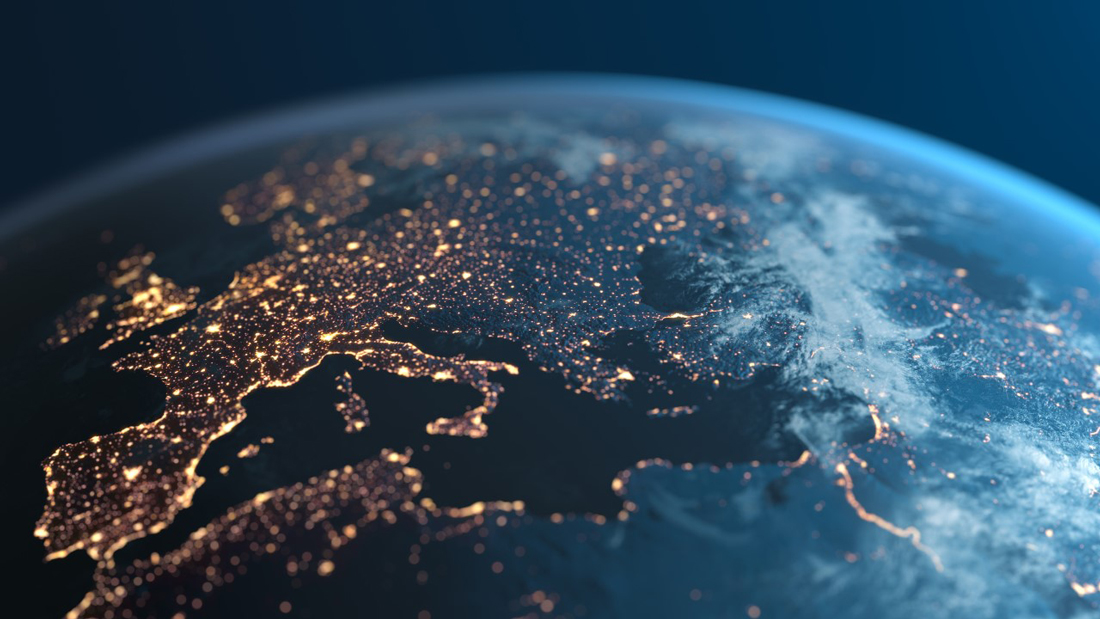Today, the White House announced that the United States and 60 other governments have signed a new Declaration for the Future of the Internet. As the world grapples with so many technology challenges, this Declaration represents a vital step at a critical moment. At Microsoft, we applaud the White House for its leadership, we are grateful for such broad global support, and we look forward to doing our part in supporting the Declaration’s principles.
As I read through the Declaration, there are few aspects that jump out as not just important but incredibly timely.
First and most broadly, the Declaration, using its own words, “reclaims the promise of the internet in the face of the global opportunities and challenges presented by the 21st century.”
This is precisely what the world needs.
Almost three decades ago when I first joined Microsoft, we all looked at the Internet and saw the promise of the digital age. In hindsight, we were too absorbed by the internet’s promise, and we paid too little attention to the potential pitfalls and even perils that would lie ahead. We collectively did too little to solve problems when they were small, and we failed to foresee the potential use and abuse of the internet by the autocrats of the world. As we approach the start of the second quarter of the 21st century, digital technology has become both the world’s most powerful tool and most formidable weapon.
This is a time for new leadership to reset and reclaim a brighter future for technology that is hardheaded and clear-eyed about the challenges we face. And it’s a time when a realistic grounding in technology challenges can help the world move faster and farther to make real a more optimistic vision for the internet’s future. The Declaration not only speaks to this future but provides with specificity the principles that will be needed to achieve it.
Second, while the Declaration embraces an important variety of critical and even timeless values, I think it’s right that it starts with a focus on human rights. Today’s new Declaration rightly grounds this focus on an explicit reference to the Universal Declaration of Human Rights, adopted when the world’s nations came together in 1948. That Declaration was forged by a generation that had not only witnessed but won the most global and terrible war in human history. World War II had claimed the lives of more than 70 million people, more that 50 million of whom were civilians. The generation that won the war rightly came together a year later to sign the Fourth Geneva Convention and adopt one of the most important advances of the 20th century, the proposition that governments must protect civilians even in a time of war.
Almost 75 years later, our generation is being put to a new test. The war in Ukraine is being fought not only on the ground, in the air, and at sea, but literally on the internet as well. As we reported yesterday, the Russian military is waging the world’s first “hybrid war” by combining cyber and kinetic weapons, and, tragically, it is targeting, destroying and killing Ukrainian civilians. All of this is being coupled with a disinformation battle that is being fought on the internet on a global scale. Today’s new Declaration points not only to the urgent technology issues we must address to grapple with the war in Ukraine, but to the many varied human needs that require our generation to step forward and act collectively to protect human rights on the internet.
Finally, today’s Declaration rightly calls for the protection and strengthening of a multistakeholder system of internet governance. This reflects one of the big differences between the worlds of the 20th and 21st centuries. As technology has evolved, governmental leadership is as important as ever. But governments can neither manage the internet nor solve the world’s greatest problems by acting alone. We need new and innovative internet initiatives that bring governments together with NGOs, academic researchers, tech companies and many others from across the business community.
This decade will require that the tech sector mature and adapt to regulation. We equally will need governments that can work together more cohesively and effectively across borders. Today’s Declaration for the Future of the Internet should help inspire us all to help build a brighter future that will benefit the generations that will come after we are gone.
Any day that brings together so many countries to embrace principles of such vital importance is a good day indeed.

